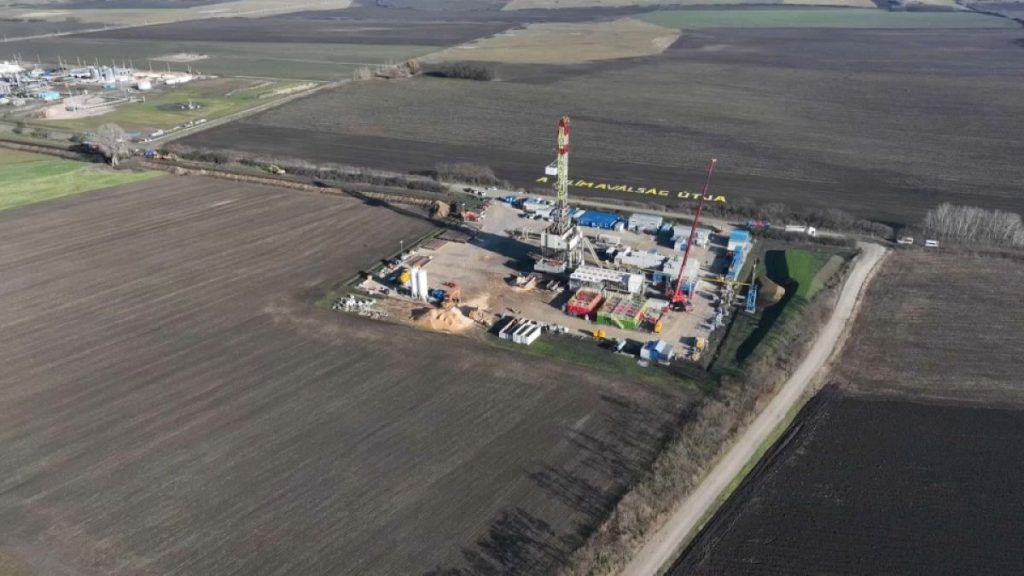Hydraulic fracturing, commonly known as fracking, is a controversial gas extraction technique that has sparked heated debates worldwide. It involves injecting a high-pressure mixture of water, sand, and chemicals deep underground to fracture shale rock formations and release trapped natural gas. While proponents tout its potential to increase domestic energy production and reduce reliance on foreign imports, critics raise serious concerns about its environmental and health impacts. This clash of perspectives has led to bans or moratoriums on fracking in several European countries, including Germany, France, the Netherlands, Slovenia, and Bulgaria. However, Hungary remains a notable exception, continuing to permit fracking operations, a practice that has drawn the ire of environmental organizations like Greenpeace.
The controversy surrounding fracking centers primarily on the composition and potential consequences of the fracking fluid injected into the earth. This fluid, while predominantly water and sand, also contains a cocktail of chemicals, including acids and biocides, designed to facilitate the fracturing process and prevent microbial growth. Greenpeace, along with other environmental groups, argues that there is no guarantee that these chemicals will remain contained underground and that they pose a significant risk of contaminating groundwater and surface water sources. This concern is not merely theoretical; studies and anecdotal evidence from various regions have linked fracking to groundwater contamination with harmful substances, including benzene, a known carcinogen. Furthermore, the process can release volatile organic compounds (VOCs) into the atmosphere, contributing to air pollution and potentially impacting human health and the environment.
Greenpeace Hungary, highlighting these concerns, recently staged a protest at a fracking site in Nyékpuszta, placing a large “Stop Fracking” banner on a drilling rig and symbolically renaming the access road “Climate Crisis Road.” The organization emphasizes the urgency of transitioning away from fossil fuels, including natural gas extracted through fracking, in light of the escalating climate crisis. They argue that continued reliance on these technologies exacerbates greenhouse gas emissions and undermines efforts to mitigate climate change. Instead, Greenpeace advocates for greater government support and investment in renewable energy sources as a sustainable and environmentally responsible alternative.
To substantiate their claims regarding environmental contamination, Greenpeace conducted air quality measurements near the Nyékpuszta fracking site using passive monitoring devices. These devices, deployed over a 13-day period, revealed benzene levels exceeding the permissible daily limit at multiple locations. This finding, according to Greenpeace, strongly suggests that fracking operations are releasing harmful pollutants into the air, posing a potential threat to public health. However, the validity of Greenpeace’s measurements has been disputed by the gas company operating the site, MVM, which claims that other accredited measurement methods should be employed. This disagreement underscores the ongoing debate surrounding the environmental monitoring and regulation of fracking activities.
The differing stances on fracking reflect a broader tension between energy security and environmental protection. Proponents of fracking argue that it offers a valuable domestic energy source, reducing dependence on foreign imports and boosting economic activity. They also contend that technological advancements and stringent regulations can minimize the environmental risks associated with the process. On the other hand, opponents argue that the potential environmental and health consequences of fracking are too significant to ignore, and that prioritizing renewable energy sources is a more sustainable and responsible path forward.
The debate surrounding fracking is complex and multifaceted, involving scientific, economic, and ethical considerations. The divergent policies adopted by European countries demonstrate the lack of consensus on the issue. While some countries have embraced fracking as a means to enhance energy security, others have prioritized environmental protection and imposed bans or moratoriums. The ongoing controversy in Hungary underscores the challenges involved in balancing competing interests and developing effective regulatory frameworks for this contentious technology. As the global community grapples with the urgent need to transition to cleaner energy sources, the future of fracking remains uncertain, with its potential benefits weighed against its potential risks.

